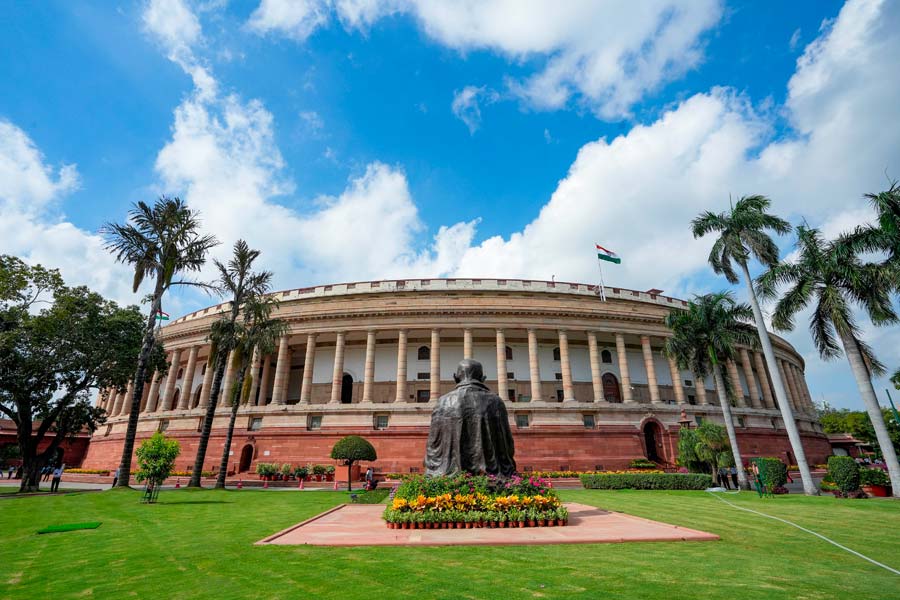The Union home ministry has handed over "comprehensive" security of the Parliament building complex to the Central Industrial Security Force (CISF) after a preliminary probe revealed lapses on the part of Delhi police leading to the huge security breach of the safety ring last week, sources said on Thursday.
A home ministry official said the CISF would replace Delhi police as the agency in charge and would take over all responsibilities, including frisking entrants.
Earlier, frisking of visitors to the Parliament complex was the responsibility of Delhi police.
"The Lok Sabha secretariat will continue to be in charge of the security within the building and the police will protect the inner and outer perimeter," said the ministry official, adding the change is aimed at streamlining protocols, and a detailed security overhaul would be enforced only after the outcome of the probe ordered by the home ministry.
CRPF personnel part of the Parliament Duty Group will also continue to be deployed inside the premises.
In a major security breach on December 13, two men stormed into the Lok Sabha visitors' gallery via passes issued by BJP MP Pratap Simmha and sprayed yellow smoke from canisters. A preliminary probe revealed that the canisters were slipped past Delhi police's physical check. The canisters were hidden in cavities cut into custom-made shoes.
"From now on the CISF will take control of the new and old Parliament complex in an airport security-like fashion where body frisking of persons will be done through hand-held detectors. The belongings of visitors will be checked through X-ray machines with a provision to even scan shoes, heavy jackets and belts by putting them on a tray and passing them through the scanner," a security official said.
The home ministry has already directed security officials to do a survey of the Parliament complex to ensure the exact number of CISF personnel required for the job and also to define the specific role of each security agency engaged in Parliament security.
At present the CISF provides security cover to sensitive public sector undertakings and guards over 350 such locations, including airports, seaports and nuclear facilities.











